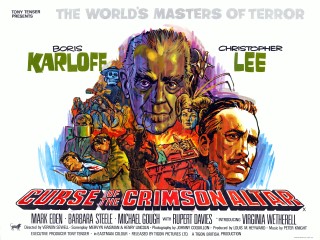An energetic and atmospheric take on the Sherlock Holmes tale, the Hammer Studios version of The Hound of the Baskervilles works as both an exciting detective story and an atmospheric Gothic chiller.
Although some changes are made to the source material, the basic plot remains the same, with Holmes (Peter Cushing) and Watson (Andre Morell) called on to investigate the mythical supernatural beast that has been haunting and killing members of the Baskerville family for hundreds of years. After his uncle Charles Baskerville is found dead, nephew Henry, the last of the line, finds himself left with the family estate – but does this have an unwanted extra, namely, the fatal family curse?
Cushing makes an excellent Holmes, a keen and energetic man with a razor-sharp brain and tongue to match, while Morell plays Watson closer to the literary version of the character, the heart to Holmes' brain, rather than the affable duffer that Nigel Bruce went for in the Basil Rathbone era films. Christopher Lee acquits himself well, playing a good guy for a change, but with enough charisma and haughty aristocratic manner to make Sir Henry convincing. The script rattles along at a good pace, and the changes from the novel merely help make the story pacey and visual without dumbing it down.
What really makes this a unique take on the story is the way director Terence Fisher seamlessly blends Holmes and his world into that of Hammer Horror. The Baskerville house could just as easily be the Frankenstein residence, and the lush colours, bold music, and spooky atmosphere could be right out of any of their genuinely more supernatural efforts.



